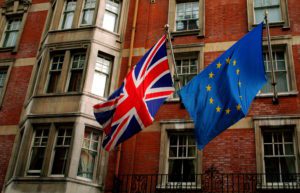Counterfeit Medicines Are a Problem in the European Union—A Problem that is Continuing to Grow

Source: Wikimedia Commons
46 people were arrested in Cyprus, Finland, France, Hungary, Portugal, Spain, and the United Kingdom in October 2019 for being members of six different organized crime gangs that sold counterfeit prescription medicines, according to a recent Europol press release. Finnish and French authorities spearheaded the police action, with eleven other European Union (EU) member states participating. The seized counterfeit drugs included antihistamines, anxiolytics, ED medicines, hormone and metabolic regulators, narcotics, painkillers, antiestrogens, antivirals, and hypnotics.
Unfortunately, this is not the only incidence of counterfeit medicines being found in Europe. According to a report from Europol’s Intellectual Property Crime Threat Assessment 2019, “Counterfeit pharmaceuticals pose a growing threat to the EU, affecting a large number of Member States. A wide and increasingly diverse range of medicines is targeted by counterfeiters.”
The Europol ICP Threat Assessment reports that there has been an increase in seizures of counterfeit drugs used in the treatment of serious illnesses, as well as a growing number of counterfeit drug incidents affecting the legal drug supply chain. Among the trends observed in European Union seizures has been the importation of raw materials and manufacturing equipment such as pill presses, mixers, blister pack machines, bottles and labels to make counterfeit drugs. China and India are the most common source for such counterfeit medicines and materials, but Singapore has increasingly become a transshipping point used by organized crime groups to deliver counterfeit drug shipments.
According to a report in The Local DE, German authorities seized over 1.5 million counterfeit prescription pills during random incoming mail searches conducted in 2018. The counterfeits included ED medications and illicit fentanyl.
In the United Kingdom, counterfeit Xanax and counterfeit diazepam pills are wreaking havoc on the populace. The BBC reports that more than 200 deaths in the UK have been linked to counterfeit Xanax. The European Pharmaceutical Review reports that seizures of counterfeit Valium, or diazepam tablets more than doubled in one year. In 2017, 545,000 of the fake pills were seized, and that number rose to 1.3 million in 2018. Some of the pills tested contained flualprazolam or fentanyl instead of the genuine ingredient.
The Daily Record reports that of the 1187 deaths in Scotland in 2018, 675 were from counterfeit Valium or diazepam. According to the Daily Record, much of the deadly fake diazepam contains etilozam, a much stronger analogue that can be ordered in bulk online from China. The Daily Record cites several instances of the fake diazepam being cheaply manufactured in Scotland from imported etilozam or nitralozam.
Counterfeit medication is nothing new in the European Union nations. As early as 2013, G-8 member countries sought to share information that would help members combat the proliferation of fake online pharmacies and counterfeit drug sales. This came after a dramatic case in the United Kingdom in 2009, when thousands were exposed to counterfeit versions of Casodex (bicalutamide) for prostate cancer, Plavix (clopidogrel) which treats strokes and heart conditions and Zyprexa (olanzapine) to control schizophrenia.